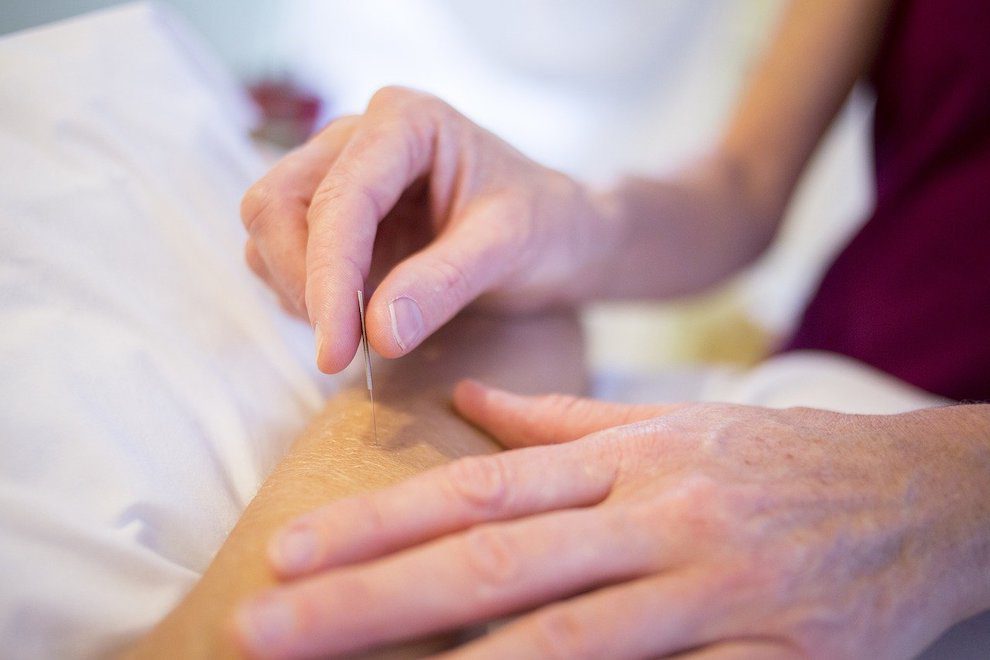Positioning acupuncture as a new cultural tourism offering to attract overseas visitors to the Guangdong-Hong Kong-Macao Greater Bay Area could be “a promising and innovative” strategy, according to a study involving a trio of IFTM academics and one alumna from the Institute, now a scholar in Britain. The authors note that the project would be dependent on “the dedication of the product development team and the support of government and private resources”.
The research paper said that promoting knowledge related to Qi – the vital energy that circulates through the body in traditional Chinese medicine – with acupuncture treatments could become an additional tourism attraction in major cities of the Greater Bay Area “after properly packaged and set”.
The study was carried out by IFTM scholars Prof. Wilco Chan Wai Hung, Dr. Jim Luo Yixin and Dr. Andy Kuo Chen Feng. They were joined by Dr. Carol Zhang Xueyue, Assistant Professor of Tourism Marketing and Management at the Business School of the University of Nottingham, a graduate from IFTM. Their academic paper “Acupuncture as a new cultural tourism product in Greater Bay Area – Stakeholders’ perspectives” was published last year in the Journal of Global Scholars of Marketing Science.
The research included 33 in-depth interviews with people either linked to traditional Chinese medicine or tourism, such as scholars, therapists, theme park operators, travel agents and tour operators. The paper hoped to understand different stakeholders’ views about using acupuncture as a tourism product for the Greater Bay Area: the city cluster has been designated as a place for promoting leisure and cultural tourism, under a strategic development plan formulated by the Central Government.
Barriers and challenges
The researchers pointed out the originality of Qi tourism as a concept that ties together cultural tourism, health tourism and the “experience economy”. The report also identified barriers and challenges that could impact upon any successful implementation of acupuncture for tourism purposes. The assessment was based on the feedback collected from the interview stage of the research.
One issue identified by the study was a “shortage of expertise and specialists” in the tourism sector able to pull together tourism products in the field of acupuncture. Other issues raised included the need to integrate edutainment features and wow factor that meets the expectations of tourists, and a need to prevent “uncontrolled imitation” and lack of regulation that could pose a health hazard. The researchers suggested partnerships “with traditional Chinese medicine universities, the use of edutainment design and application of utility patent” could address some concerns.
The study urged the appropriate translation of concepts from Chinese into other languages. “Acupuncture-related knowledge is largely in Chinese, whereas the target market is overseas tourists. There is a need to translate the knowledge from Chinese into English or other languages,” the academics said.
The paper said funding was “the paramount factor” to ensure the successful development of acupuncture as a tourism product. “As the proposed tourism product is new and unique, different funding originators may have different views on the anticipated return, expectation on duration of the product cycle and perception of social benefits,” the academics stated. “Thus, examination of funding opportunities – venture funds, government or institutional funds and entrepreneurial funds – may bring tourism stakeholders’ broader and deeper understanding about the subject before their decision-making for developing such product.”
More info
Dr. Jim Luo Yixin is an Assistant Professor at IFTM. He holds a PhD from the Auckland University of Technology in New Zealand. Dr. Luo’s research interests include human resource-related issues, competitive strategies, and cultural tourism.
Dr. Carol Zhang Xueyue is an Assistant Professor of Tourism Marketing and Management at the Business School of the University of Nottingham in Britain. She has a PhD from the University of Surrey, also in Britain. Dr. Zhang began her higher education studies at IFTM, graduating in 2010 with a Bachelor’s Degree in Tourism Business Management.
Dr. Andy Kuo Chen Feng joined IFTM in 2016. He holds a PhD in Hospitality and Tourism Management from Purdue University, in the United States. Dr. Kuo has held several consulting positions in the hospitality sector.
https://doi.org/10.1080/21639159.2020.1808842









